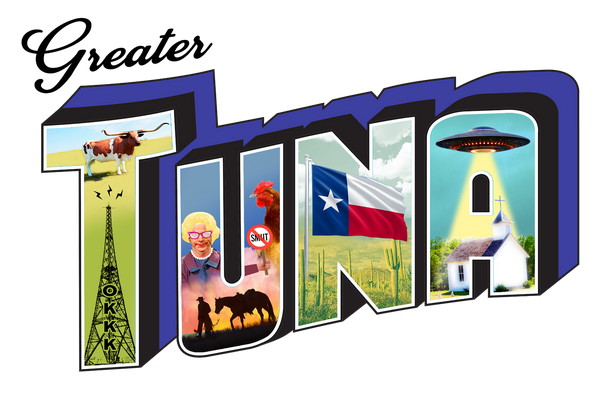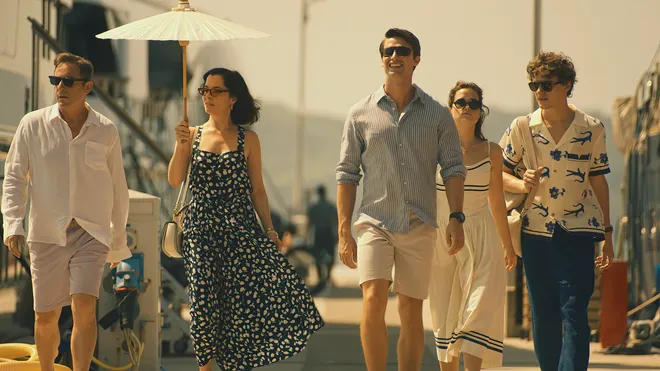An entertaining look at small town attitudes and values in a new virtual format
Erica Richardson, Staff Reporter
Originally published February 24, 2021
Credit: Stephanie Layton Used with permission from Ballard Theatre Department
When I found out that Ballard Playmakers would be creating plays while in online school, my interest was piqued.
I was unsure whether the performance would be a recording of a live play, or if it would be done in a park, to avoid the actors in an enclosed space together. But whatever my expectations, the Theatre Department far surpassed them.
Tickets were purchased through Schoolpay to gain access to a private Youtube link that premiered for three consecutive days in October.
“Greater Tuna” was written in 1980 by Jaston Williams, Joe Sears and Ed Howard. Ballard’s production opened with a recorded message advocating for the importance of donations to the arts, especially during the pandemic.
The performance began with a radio show setting with two lively rural hosts, and I was struck with the creativity used to create the set. Each actor was costumed simply in flannel and a hunting hat, contributing to the country locale.
Later, I interviewed Theatre Department Director Shawn Riley about the play’s process.
“We did everything in front of a green screen,” Riley said. “Then we edited it all together to make it appear as if everyone was in the room together.”
The two radio hosts served as the narration and commentary on the plot of the fictional town of Tuna, Texas.
“[The] script had [originally] been written for two men to play 10 characters, each,” Riley said. “But we got permission to do it with multiple people [instead].”
The online structure was well-suited to “Greater Tuna” because of the various vignettes that it produced, which were all connected by the radio talk show hosts.
“The show did work well for the format, and I knew it would because when you see the show live, you only ever see one of the guys on stage at a time, except for the two news reporters, because they’re constantly changing costumes and wigs to become the next person [in the next scene],” Riley said.
Choosing a play that was conducive to a virtual environment was difficult.
“The trick was just trying to find a script that would allow for students to not have to be in the same room together,” said Riley.
“Greater Tuna” worked because it didn’t demand a full ensemble to be performing in the same area as many other plays would have. Almost none of the actors were actually in the room together and instead recorded their parts individually, which were then stitched together in post-production by Theatre videographer Gustavo Gutierrez.
“There were a lot of people who were convinced that [the actors] were all in a room together,” Riley said.
Since the actors hadn’t seen any scenes other than the ones they starred in, many of the actors were pleasantly surprised at the premiere. While in a regular theatre production, nearly the whole cast would already know the in’s and out’s of the entire performance.
“[The play] did take a lot of time with all the editing and everything but I guess it’s time that we would have spent working on costumes, or building a set. So, probably [a similar] amount of hours,” Riley said.
Making an online play differed significantly from an in-person one in nearly every respect.
“I cast them based on an interview tape that they sent in, and on the day of filming, we had to do a lot of work there with some of the people because I didn’t know what they were capable of, they [had] never worked with me before,” Riley said. “I couldn’t test the chemistry between any of the characters before casting. I couldn’t have callbacks. I can [usually] see how people look together, or how they react to one another and this, I just didn’t have that opportunity.”
Although imperfect, the online play format allowed the arts to survive, albeit in a new shape.
“The beauty of theater is that it’s a communal experience. I really missed that communal laughter and the applause for the kids,” Riley said.

























